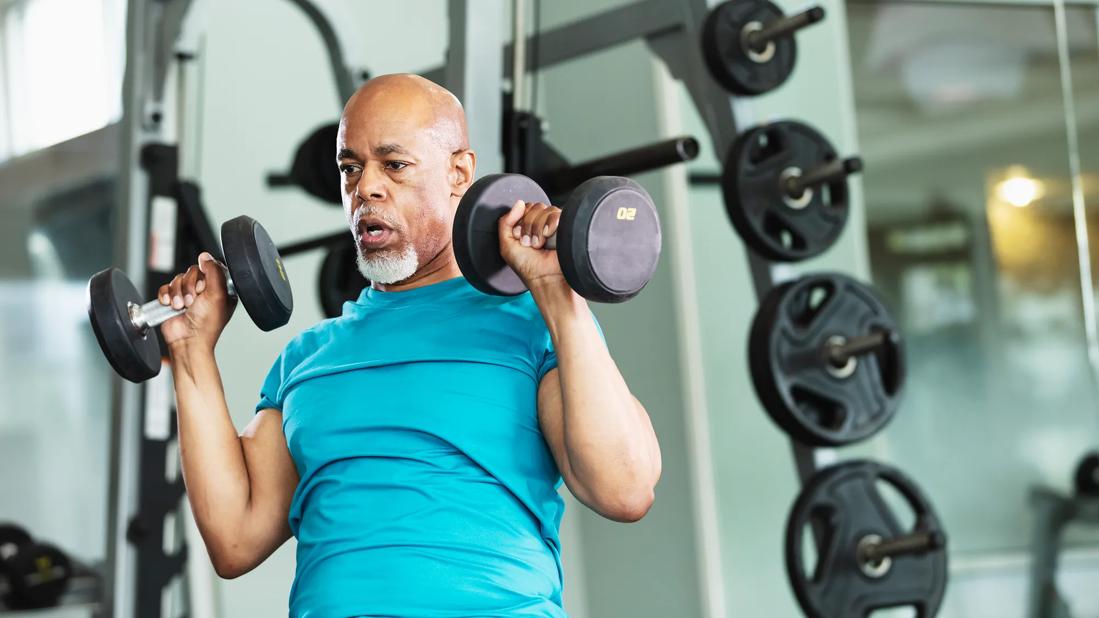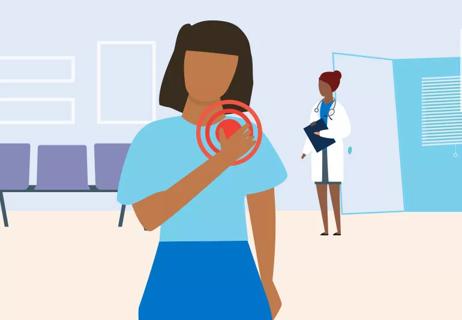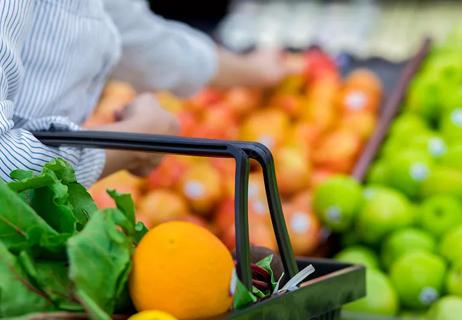Bone health starts with proper nutrition, exercise and healthy lifestyle choices

It’s a fact of life: As you age, your bones become thinner and lose their density.
Advertisement
Cleveland Clinic is a non-profit academic medical center. Advertising on our site helps support our mission. We do not endorse non-Cleveland Clinic products or services. Policy
Fortunately, you can take steps early on to strengthen your bone health and prevent osteopenia (bone thinning) and osteoporosis (late-stage bone loss).
Orthopaedic surgeon Kim Stearns, MD, explains why bone health is important and shares strategies for improvement.
Many factors can directly affect the health and strength of your bones, including:
Advertisement
Generally, anything that’s good for your overall health will be good for your bones, too. Being proactive about your bone health is key to making them solid and strong for the long haul. These strategies in particular can help prevent low bone density and bone loss, the longer you focus on them.

Image content: This image is available to view online.
View image online (https://assets.clevelandclinic.org/transform/415cb9de-6bbe-47fb-9f98-bd6575352871/strong-bones-1178018317-infographic)
Nutrients strengthen your bones. Vegetables (especially cruciferous ones like broccoli) are the best source of vitamin C, which stimulates production of bone-forming cells. Green and yellow veggies have also been shown to help keep minerals inside your bones so they’re less likely to soften or weaken over time.
Calcium is a major building block for healthy bones. Without it, you have an increased risk of bone loss and low bone density. Try to work calcium-rich foods into each meal and make room for snacks like cottage cheese, almonds and oranges.
A lot of us don’t get enough vitamin D from the sun. Taking a vitamin D supplement will ensure you meet your daily needs. But whenever possible, try to get your sources of vitamin D from whole foods. You also want to make sure you don’t overdo it — talk to a healthcare provider first before taking any supplements.
To help absorb calcium, most adults need 1,000 to 2,000 IU of vitamin D daily, says Dr. Stearns. Combined calcium-vitamin D pills usually don’t meet this requirement.
Strength-training exercises like weightlifting or stomping in place are especially important for stimulating new bone growth and slowing bone loss. The key is resistance training ― or progressive bone loading — where you ramp up the resistance or amount of weight as you perform one to two sets of 10 to 12 repetitions per exercise. If you’re already dealing with bone loss or other injuries, you’ll want to work with a physical therapist or athletic trainer before trying this on your own.
“As far as bone health goes, it’s important to stress your bones through exercise,” says Dr. Stearns. “Stressed bones maintain their mineral and calcium content. When someone is on prolonged bed rest or doesn’t exercise regularly, the body absorbs the calcium from the bones, which then lose density and become weak and brittle.”
Weight-bearing exercise is defined as an activity that forces you to move against gravity or gives you resistance as you move. High-impact weight-bearing exercises are best for improving bone health and include:
These might need to be limited if you’ve been diagnosed with osteopenia or osteoporosis. Clear any exercise plans with your doctor first to prevent the risk of injury.
Advertisement
Anything you put into your body will have a direct impact on your bone health and overall wellness. If you smoke, look into a program to help you quit. If you drink, the recommendation is to stick to no more than one drink a day. In general, finding reasons to be sober can improve your health in many ways.
Women experiencing perimenopause may consider hormone therapy, especially if they have symptoms of menopause (hot flashes and more), to increase waning estrogen levels, which are linked to bone loss. And women and men diagnosed with osteopenia or osteoporosis can take various medications to prevent dangerous hip and spine fractures. Talk to your doctor about options like:
And remember, “None of these medications work without calcium and vitamin D as building blocks,” states Dr. Stearns.
Doctors can get a quick and painless “snapshot” of bone health using a simple X-ray test called DXA. This test measures bone mineral density and helps determine risks of osteoporosis and fracture. It’s recommended that women be tested in the first two years after menopause. Earlier tests are recommended for people with certain diseases and for those taking medications that increase risk, such as long-term steroid therapy.
Advertisement
“Bone density testing is usually recommended for women every other year once they reach menopause. Men should consult their primary physicians about the need for testing,” advises Dr. Stearns.
“If you’re at risk for vitamin D deficiency due to the lack of regular sun exposure, you should consider taking a maintenance dose of vitamin D daily or weekly.”
Advertisement

Sign up for our Health Essentials emails for expert guidance on nutrition, fitness, sleep, skin care and more.
Learn more about our editorial process.
Advertisement

Plus, ways to keep your bones healthy and strong!

It could be an injury, arthritis, a bone infection or even the position of your collarbone

Why pills aren't a substitute for food

This once-common treatment for arthritis is regaining popularity in the United States

Estrogen loss contributes to bone loss, which significantly raises your risk of osteopenia and osteoporosis

A whole grain, sorghum is chock-full of antioxidants and nutrients that boost energy, support a healthy immune system and more

While an ultrasound shows your muscles and tendons, an MRI also shows your joint cartilage, bones and heart chambers

Getting enough of this essential mineral is important for your bones, teeth and so much more

Even small moments of time outdoors can help reduce stress, boost mood and restore a sense of calm

A correct prescription helps your eyes see clearly — but as natural changes occur, you may need stronger or different eyeglasses

Both are medical emergencies, but they are very distinct events with different causes